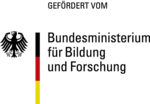Concept Laboratory on Religion and Society in the 21st Century
May 4–6, 2011
The Concept Laboratory was divided into two different parts.
The first part included an open guest lecture held by Prof. Dr. Annette Schavan, Federal Minister of Education and Research, as well as an open panel discussion on the subject Religions Today: Clash or Coexistence?, which was comprised/made up of selected participants of the Concept Laboratory.
The second part consisted of/in (???) internal lectures and discussions entitled Religion and Society in the Twenty-first Century. There was only limited access for the public to the three-day Concept Laboratory.
You will find the event's agenda here.
Guest Lecture Minister Schavan:
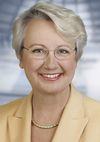 |
Guest Lecture on the subject:
Reference to God as a Liberating Impulse. A video of the lecture is available. |
Panel discussion:
Religions Today: Clash or Coexistence?
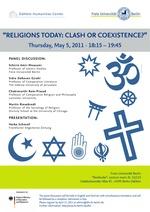 |
Religions Today: Clash or Coexistence? How can societies cope with religious plurality? Are religious frictions unavoidable, or can strategies for peaceful coexistence be evolved? If so, what characteristics must a religion have (or not have) in order to cope peacefully with the existence of other religions? One focus of discussion will be the general significance which a religion must have within a society in order to work productively towards the higher goal of global pacification. Furthermore, the dogmatic or theological content of the different religions which could contribute to achieving this aim will be analyzed. A video (german/english) of the panel discussion is available.
|
Presentation of panel discussion:

Foto: Barbara Staubach |
Heike Schmoll was born in Villingen in 1962. She studied both German language and literature and Protestant Theology (for the teaching profession and for the pastoral ministry) in Heidelberg, Tübingen and Munich. She completed her studies in 1988 with the state examination in Tübingen. During her first semesters, she was a freelance concert reviewer for the arts section of the Heidelberger Tagesblatt. She then suspended her studies to do an internship at the public TV station Südwest-Fernsehen in Baden-Baden. In 1989 she joined the news desk of the Frankfurter Allgemeine Zeitung, where she was responsible for science and educational policy; since 2008 she has been a correspondent in Berlin. She was awarded an honorary doctorate from the Protestant Theology Faculty of the University of Tübingen in 2002. In 2005, the Henning Kaufmann foundation awarded her the Deutscher Sprachpreis (German Language Prize). |
Participants of Concept Laboratory and Panel Discussion:
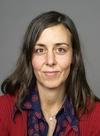
Foto: privat |
Schirin Amir-Moazami holds a PhD from the department of Social and Political Sciences of the European University Institute in Florence. Since 2009, she has held the position of Assistant Professor for Islam in Europe in the department of Islamic Studies at the Freie Universität, Berlin. She has published a book on headscarf controversies in France and Germany under the title Politisierte Religion. Der Kopftuchstreit in Deutschland und Frankreich, and has also published numerous articles on issues concerning Muslims in secular European regimes. In her current research, she is focusing on the processes of governmentalization of Islam in Germany. Her research interests include Islamic movements in Europe, Political Theory, Feminist Theory and Sociology of Religion. |
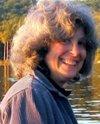
Foto: privat |
Sidra DeKoven Ezrahi is Professor of Comparative Literature at the Hebrew University of Jerusalem, and has taught at Dartmouth, Princeton, Yale, Duke and Michigan. She is the author of By Words Alone: The Holocaust in Literature (1980), which was shortlisted for the National Jewish Book Award; and Booking Passage: Exile and Homecoming in the Modern Jewish Imagination (2000), which was shortlisted for the Koret Book Award. She has written on subjects ranging from representations of the shoah in postwar American, Israeli and European culture to the configurations of exile and homecoming in contemporary Jewish literature. In 2007 she became a Guggenheim Fellow for her current project on “Jerusalem and the Poetics of Return”. She divides her time between Jerusalem, Israel, and Wilmot, New Hampshire. |

Foto: privat |
Chakravarthi Ram-Prasad studied History, Politics and Sociology in India before taking a doctorate in Philosophy at Oxford University. Prior to joining the faculty at Lancaster University, he held research fellowships at Oxford and Cambridge, and also taught at the National University of Singapore. He has written several books on comparative philosophy, including Knowledge and Liberation in Classical Indian Thought (2001), Eastern Philosophy (2005) and Indian Philosophy and the Consequences of Knowledge (2007), as well as nearly fifty papers on a variety of topics, including epistemology, ethics, comparative theology, religion and politics, and inter-cultural relations. He has done research on religion and immigration for the British Home Office, and has also conducted other research projects, for instance, on religion and cultural values in the Indian IT industry. He was PI on a major research project funded by the British Arts and Humanities Research Council on comparative philosophies of the self. In addition, he is currently involved with the Dalai Lama’s Mind Life Institute on neuroscience and the contemplative traditions, and has recently worked with the Archbishop of Canterbury on Hindu-Christian social relations and comparative theology. |

Foto: privat |
Martin Riesebrodt has served since 1990 as Professor of Sociology at the University of Chicago, where he holds a joint appointment at the Department of Sociology and the Divinity School; he is also associated with the university’s Center for International Studies. His main academic interests are the historical and comparative sociology of religion, and classical social theory, especially the work of Max Weber. He is presently working on a book on asceticism and its transformations in the modern age. His major publications include: The Promise of Salvation: A Theory of Religion. University of Chicago Press 2010; Die Rückkehr der Religionen. Fundamentalismus und der ‚Kampf der Kulturen’. C.H. Beck 2000; Pious Passion: The Emergence of Fundamentalism in the United States and Iran. University of California Press 1993. |
Participants of Concept Laboratory:
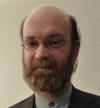
Foto: privat |
Volkhard Krech studied Protestant Theology, Comparative Religion, Sociology, and Philosophy at the universities of Heidelberg and Bielefeld. He currently holds the positions of Professor of Religious Studies, Speaker of the Research Department Center for Religious Studies (CERES) and Director of the Käte Hamburger Kolleg “Dynamics in the History of Religions” at Bochum University. His research interests include the theory of religion and history of religions, religious pluralization and globalization, religion and violence, and religion and the arts, as well as the history of Religious Studies. His book on Religion in Modern Society will be published by Transcript Publishers in summer 2011. |

Foto: privat |
Paula Montero is a full professor at the University of São Paulo Brazil, and she is President of the Brazilian Center of Analysis and Planning (CEBRAP). After researching a PhD in Social and Cultural Anthropology at the University of São Paulo, she was invited to Columbia University (1984) as Visiting Scholar of the Institute of Latin American Studies, and to the University of Chicago (1996) as a Tinker Visiting Professor. Since 1983, she has been interested in popular religions in Brazil. Her anthropological studies have focused on Afro-American traditions, stressing healing practices, witchcraft and possession. In recent years, she has focused on issues of intercultural relations and multiculturalism; her latest work has centered on Christian missions among the Amazonian Indians. At present she is studying new forms of religious organizations, and their activities in the modern public sphere. |

Foto: privat |
Tariq Ramadan is Professor of Contemporary Islamic Studies at Oxford University (Oriental Institute, St Antony's College). He also teaches at the Oxford Faculty of Theology. He is a Visiting Professor at the Faculty of Islamic Studies, (Qatar), a Senior Research Fellow at Doshisha University (Kyoto, Japan) and a Visiting Professor of Philosophy at Mundiapolis University (Morocco). Tariq Ramadan holds an MA in Philosophy and French literature, and a PhD in Arabic and Islamic Studies from the University of Geneva. In Cairo, Egypt, he received one-on-one intensive training in classic Islamic scholarship from scholars at Al-Azhar University. Through his writings and lectures, Tariq has contributed substantially to the debate on issues of Muslims in the West and Islamic revival in the Muslim world. He is an active lecturer, both at academic and grassroots-levels, and has lectured extensively throughout the world on theology, ethics, social justice, ecology, and interfaith and intercultural dialogue. He is also President of a European think tank, the European Muslim Network (EMN) in Brussels. Latest books: The Quest for Meaning, Developing a Philosophy of Pluralism, Penguin 2010; What I believe, OUP USA 2009; Radical Reform, Islamic Ethics and Liberation, OUP USA 2008 |

Foto: LMU München |
Martin Schulze Wessel studied East European History and Slavic Literature in Munich, Moscow and Berlin. He wrote his PhD thesis about the Polish question in the Russian-Prussian relations in the 18thand 19th century. He became assistant professor at the University of Halle-Wittenberg in 1996 and wrote his second book about revolution and religious dissent in the Russian and the Habsburg Empires. Since 2003 Schulze Wessel is professor of Eastern European History at LMU Munich. He is chairman of the Collegium Carolinum, a research institute for the history of Bohemia and Moravia. He also serves as spokesman for the International Postgraduate Program on religious cultures in the 19thand 20thcentury Europe jointly set up by the LMU München and the Charles University Prague. His most important publications are: Nationalisierung der Religion und Sakralisierung der Nation in Ostmittel-, Südost- und Osteuropa im 19. und 20. Jahrhundert, Stuttgart 2006; "The Impact of Religion on the Revolutions in France (1789) and Russia (1905/17)", in: Manfred Hildermeier (Hg.), Historical Concepts between Eastern and Western Europe, New York 2007; "Religion, Politics and the Limits of Imperial Integration – Comparing the Habsburg Monarchy and the Russian Empire", in: Hirschhausen, Ulrike von; Leonhard, Jörn (Hg.): Comparing Empires: Encounters and Transfers in the Long Nineteenth Century. Göttingen 2011, S. 337-358. |

Foto: privat |
Asonzeh Ukah studied Comparative Religious Studies at the University of Ibadan, Nigeria, and graduated with a First Class Honours in 1994. He obtained an MA in Sociology of Religion in 1997 and an M.Sc in Sociology in 1999 from the same university. He obtained a PhD. in History of Religions (Magna Cum Laude) from the University of Bayreuth, Germany, in 2004. He is the author of A New Paradigm of Pentecostal Power (Africa World Press, 2008). His articles which focus on African Pentecostalism, Religious advertising and popular culture, have been published internationally in English, German and Spanish. Since 2007 his research focus has been on migrant religions in South Africa; he was a member of a University of Bayreuth based research team on a DFG-funded project on “Tradition and Innovation: Old and New Churches in the Religious Market of South Africa” (2008-2010), which was an offshoot to an ongoing project on “The Economy of Sacred Space in Durban, South Africa” (2011). |

